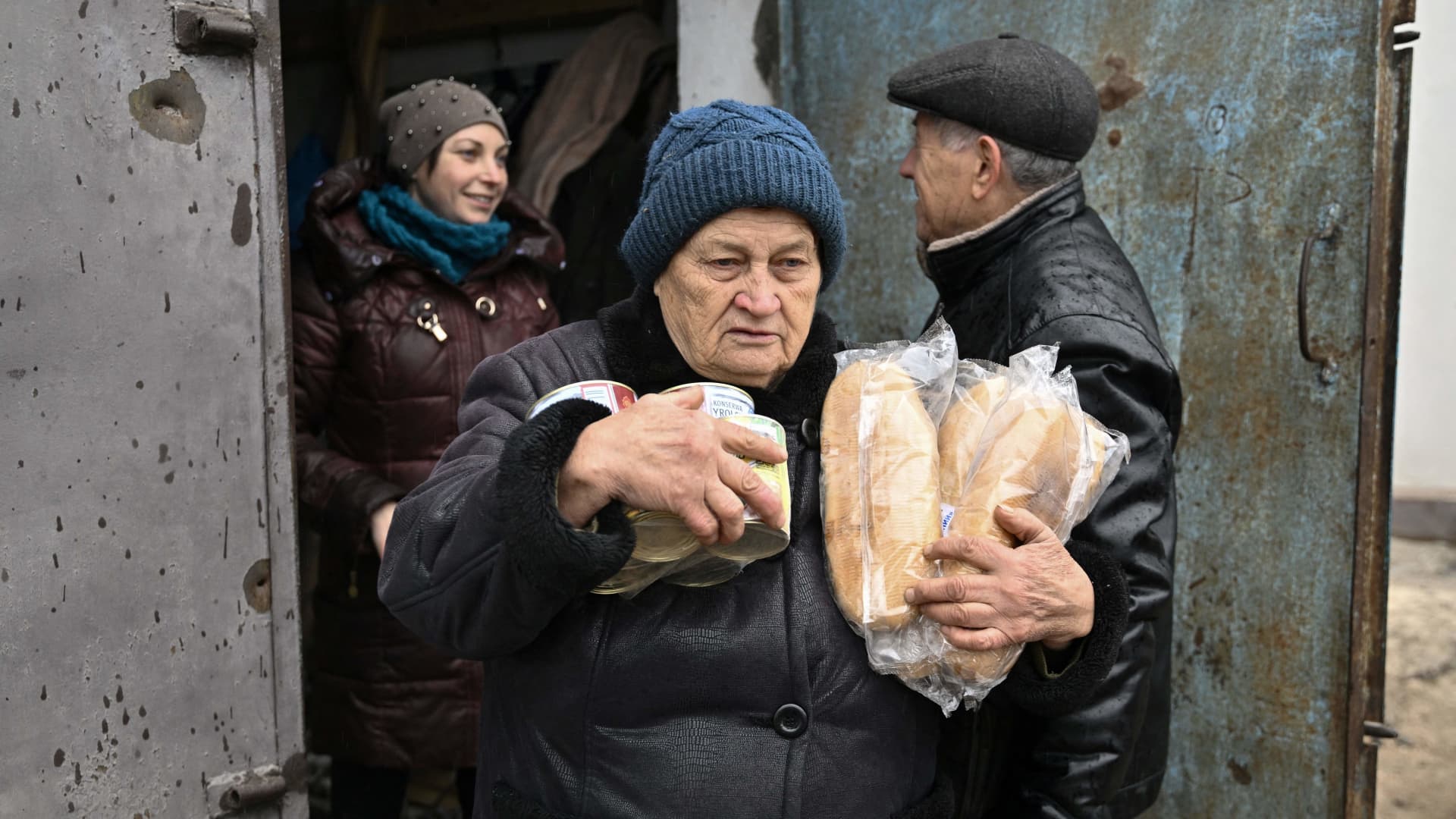WASHINGTON — America’s top spy agency says Russia’s war in Ukraine has disrupted global food security and triggered not only higher prices but also political instability in some of the world’s most vulnerable countries.
The Office of the Director of National Intelligence, which oversees the nation’s 18 intelligence agencies, warned that countries located in sub-Saharan Africa, Afghanistan, Pakistan, Syria and Yemen are particularly susceptible to political instability as a result of food insecurity.
“The combination of high domestic food prices and historic levels of sovereign debt in many countries, largely caused by spending and recessionary effects of the Covid-19 pandemic, has weakened countries’ capacity to respond to heightened food insecurity risks,” ODNI wrote in the assessment.
The intelligence group also wrote that the war has contributed to the “immediate and rapid rise in the prices of agricultural inputs, such as fertilizers and fuel.”
The unclassified 8-page report mandated by Congress also said Russian forces stole approximately 6 million tons of Ukrainian wheat, likely for export. The Kremlin has previously denied that its troops in Ukraine targeted civilian infrastructure and engaged in looting.
Read more of CNBC’s politics coverage:
Before Russian troops poured over Ukraine’s borders in late February 2022, Kyiv and Moscow accounted for almost a quarter of global grain exports.
The two countries exported approximately 34% of the world’s wheat, 17% of corn and more than 70% of sunflower oil, according to data compiled by the United Nations.
Those exports came to a halt for nearly six months until representatives from Ukraine, Russia, the U.N. and Turkey agreed to establish a humanitarian sea corridor under the Black Sea Grain Initiative. The deal, which was brokered last July, eased Russia’s naval blockade and reopened three crucial Ukrainian ports.
More than 1,000 ships carrying nearly 33 million metric tons of agricultural products departed from Ukraine’s war-weary ports for nearly a year before Russia withdrew from the agreement last month.
Kremlin spokesman Dmitry Peskov said earlier this month that Russian President Vladimir Putin will meet in-person with Turkish President Recep Tayyip Erdogan to discuss a potential return to the Black Sea grain deal. Peskov said the two would meet “soon” but declined to give an exact timeline for the meeting.
What’s more, China, one of Moscow’s most strategic allies and the world’s second-largest economy, was the indisputable top recipient of Ukrainian agricultural products under the Black Sea Grain Initiative.
Zhang Jun, China’s permanent representative to the United Nations, said earlier this month that the Black Sea grain deal had a “positive impact on maintaining global food security” and called for the immediate resumption of Ukrainian agriculture exports as well as Russian fertilizer products.
“China hopes that all relevant parties will intensify dialogue and consultation and meet each other halfway,” Zhang said during a U.N. Security Council meeting on Aug. 3 chaired by U.S. Secretary of State Antony Blinken.






